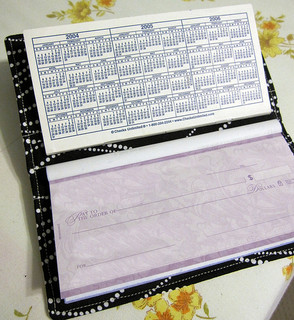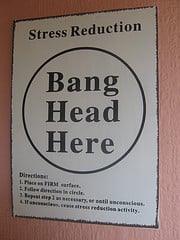If you are receiving Social Security Benefits, most are protected from creditors, but not all!
 It is a common misunderstanding that a debt collector has the right to garnish your income or bank account for an unpaid bill.
It is a common misunderstanding that a debt collector has the right to garnish your income or bank account for an unpaid bill.
While this is kind of true, it is very important that you realize that a debt collector CANNOT apply for garnishment or a bank levy without first being awarded a judgment by the courts.
Having said that, you must also realize that the IRS and State Agencies CAN garnish or levy for certain debts, such as:
- Child Support
- Spousal Support (alimony)
- Federally guaranteed student loans
- Federal and State Taxes
- Other debts owed to State or Federal Agencies
Rather than get into those debts, let's talk about what can or cannot happen to your Social Security Benefits if a debt collector (again, not from the list above) receives a judgment.
Let's say that you have an unsecured credit card debt, and you just cannot afford to make the minimum payments. The account becomes 30,60 or 90 days past due and you are receiving phone calls and nasty letters.
It is at this point that your credit card account may be sent to a collection agency. Now things really get serious. More calls and letters, but now you can put a stop to those calls:
It is one thing to put a stop to the calls, but the letters will continue. Too many people are so frustrated about being in such a terrible financial situation that they do their best to ignore these letters.
If that's what you have done, then it is possible that the debt collector will file a complaint.
A "complaint" is a legal process whereby the person who is owed the debt contacts an attorney (licensed in your state) and the attorney files the proper paper work (complaint) with the court in your county.
Next, you will receive a SUMMONS, and this is a little scary!
The worst thing you can do is to ignore the summons. DO NOT IGNORE A SUMMONS!
Most of the time, some sort of settlement or agreement can be worked out even after a summons is issued, but if you do nothing, a court date will be scheduled and the debt collector will be awarded a judgment. This is called a Default Judgment, as the debt collector (plantiff) was awarded the judgment because no one from your side (defendant) was there to argue.
By the way, unless you can prove that you do not owe the debt, there is really no reason to give the legal "ANSWER" that the summons mentioned. Most courts charge a hefty fee to file an "ANSWER", and it must be "legally" correct, meaning you might have to pay an attorney for their services!
So now you know that except for the debts to the Federal or State governments and the other obligations mentioned above, there is a legal process that must happen before a garnishment or levy can happen.
But, let's say your creditor (debt collector) is awarded the judgment and sends a writ of garnishment/levy to your bank. NOW WHAT?
Good news! As of May 1, 2011, when a bank receives a garnishment writ or order, it must review your records or statements to determine if a Social Security check has been direct-deposited into your account in the past 2 months. This is called the Look-Back Period.
The bank will determine the total amount of "exempt funds"...funds from Social Security Benefits. SSI (Supplemental Security Income), Veterans benefits, and federal employee retirement checks will receive the same type of protection.
Other retirement income is also exempt from garnishment or levy, but is not given the same automatic "Look-Back Period" afforded direct deposits from Social Security Benefits!
Many banks or credit unions will help protect it's bank customers retirement funds from garnishment or levy, but you just assume they will!
If you are falling behind on your debts and have received a summons, then you should contact your bank immediately and find out what their procedure is if they are presented a writ of garnishment or levy. Most banks will "FLAG" your account to notify anyone at the bank that those funds are exempt, BUT DO NOT TAKE IT FOR GRANTED!
Another important point!!!!
Let's say that your Social Security Benefit is directly deposited in your checking account. You want to move some funds to a savings account to make sure you have a little money set aside for a rainy day. Seems like a good idea....WRONG!!!
If you transfer funds from the account that had received the Social Security Benefit, they are now NOT PROTECTED from garnishment or levy!
ONE MORE THING TO KEEP IN MIND...
Let's say that you have a part-time or side business to help out. You get a little money from this extra job and you deposit it in the same checking account that receives your Social Security Benefit. Prior to May of 2011, these funds were considered "co-mingled fund" and now all of the funds were subject to garnishment or levy!
Now, the bank will exercise the 2 month "Look-Back Period" and will determine how much is from Social Security and how much was from another, unprotected source. Those funds would be subject to garnishment or levy.
HERE IS WHAT I SUGGEST:
Once you have received a summons, you know that the debt collector is very serious and will do every legal thing they can to collect that debt.
- 1) Contact your bank to determine what level of protection you have from a possible garnishment or levy. If they don't give you a good feeling of security, consider moving your account!
- 2) If you receive "other sources of income", you should consider not having them direct-deposited or deposited at all! I know, but until this summons/debt is dealt with, I would not risk it! I've seen a client of ours who was too stubborn to take our advice have a coupld of thousand of dollars "frozen" by his bank and he couldn't make rent or buy groceries!
BOTTOM LINE...
Yes, Social Security Benefits are protected from garnishment or levy, but you CANNOT take it for granted!
If you receive a summons, then you must be pro-active. The worst thing you could do is to do nothing.
Photo by Heidi Elliot
http://www.flickr.com/photos/7342234@N02/3846575731/









 If you live in Oregon, I've got some good news on how you can find debt relief!
If you live in Oregon, I've got some good news on how you can find debt relief!

